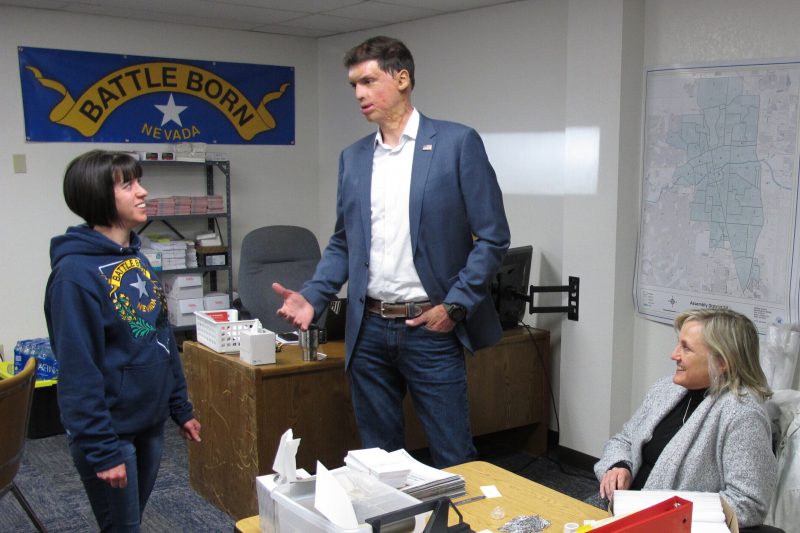Sam Brown, a retired U.S. Army captain severely injured by an explosion in Afghanistan, announced a GOP bid Monday for the seat held by Sen. Jacky Rosen (D-Nev.), among those that Republicans are eying as they seek to regain control of the Senate in next year’s elections.
Brown ran for Senate last year but placed second behind Adam Laxalt in the Republican primary with 34 percent of the vote. Laxalt, a former Nevada attorney general, narrowly lost to Sen. Catherine Cortez Masto (D-Nev.) in the general election.
This time around, Brown is running with the support of national Republican leaders and struck a more moderate tone in his announcement.
“I know our mission to restore the American Dream is achievable if we work together,” Brown said in a statement. “In the military, no one asks you what party you are in. They just want to know they can count on you to get the job done. That’s the attitude we need to tackle the problems of today.”
Former state representative Jim Marchant, who has refused to accept the results of the 2020 election, is already running in the GOP primary for Senate. Marchant lost a bid for Nevada secretary of state last year.
In Brown’s failed Senate bid last year, he proved to be a relatively strong fundraiser. He voiced opposition to abortion access and accused Laxalt of not doing enough to protect “election integrity.”
In 2018, Rosen knocked off incumbent Sen. Dean Heller (R-Nev.), winning the general election by 5 percentage points in the swing state. But Republicans think Rosen could be vulnerable next year, particularly on the issue of abortion.
Republicans are bullish on their chances of retaking the Senate, in part because of a favorable map.
Twenty-three members of the Democratic caucus are up for reelection in 2024, compared with 11 Republicans. GOP-leaning states that Democrats will be defending include Montana, Ohio and West Virginia. Democrats also are defending seats in the battleground states of Wisconsin, Pennsylvania, Arizona and Michigan.
The Democratic Party holds a 51-49 Senate majority, which includes three independent senators — Bernie Sanders (Vt.), Angus King (Maine) and Kyrsten Sinema (Ariz.) — who caucus with the party.
Theodoric Meyer and Leigh Ann Caldwell contributed to this report.








